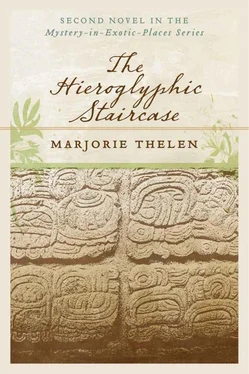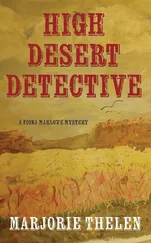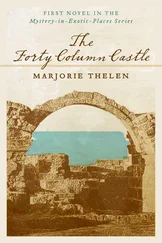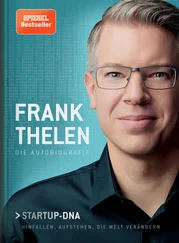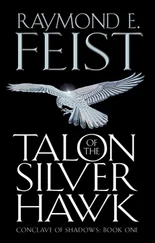What would that be?
Alone, Elena sat for a long time trying to make sense of what happened. The shadows were long when she finally roused from her seat in the living room. Her feet rested on the cool tile of the floor. It was the only cool thing in the room. Everything else was unbearable. Heavy. Hot. Close. Like an unwelcome lover.
What she needed was a sane life at a normal university teaching normal students Mesoamerican archaeology. Maybe she should leave the field altogether. But what else could she do? She was unemployable outside of her field. And besides, she loved epigraphy. She always had. She was good at it.
A shower would help, and she made her way to the tiny bathroom and stripped, dropping her clothes on the floor. On second thought, she tossed them in the trash can. She never wanted to wear those filthy things again. She scrubbed and washed and rinsed till she felt like a smooth polished stone.
She shimmied into a dress, a yellow jersey with a pattern of small red and white roses. Somehow a dress put her outside and away from the events of the morning. It was a simple sundress with flared skirt that she had picked up in the beggars market in Rio de Janeiro. It was the kind one could wring together for packing, then shake out, and wear. Its design reflected her state of mind, formless, wandering.
She took time blowing her hair dry, brushing and brushing and brushing until it was shiny and fell into natural waves around her bare shoulders. She took even more time applying her makeup. Shadow, eyeliner, mascara, blusher. The full regalia.
Studying her reflection in the mirror, she wondered about taking so much time with her appearance, like she had a date or something. Maybe she was trying to erase memories, call into being a world she was used to that had parties and laughing people. She looked down into the white porcelain bowl of the sink. What she really wanted to do was to throw up. Throw up all the bad things and flush them down the toilet. But the events of the last few days were so terrible they wouldn’t fit in this bowl or the toilet and besides they wouldn’t be done with. They would always be with her.
To try to take away the horrid taste of the day, she brushed her teeth and then applied lipstick. She needed was a stiff drink, something cold and potent and tangy, that would relax into her bloodstream. There would be nothing in doña Carolita’s house that fit that bill.
In the kitchen she lifted the lid on the pot of soup but the smell turned her stomach, and she hastily replaced the lid. In the refrigerator she selected a cola and poured a glass. She drained the glass, feeling the bubbles calm her upset stomach. A martini would taste even better, like at the clinic party the other night. Could it have been only two nights ago?
The sound of a vehicle in front of the house caught her attention, and she glanced at her watch. It was after seven. Dominic was at the front gate.
“Hi,” he said. “How you doing?”
A smile of welcome was her answer. She opened the door, and he stepped inside the iron barred gate into the dim shadows huddling around the front of the house.
He held out his arms. She sighed and let him enfold her in his embrace. For a long time they stood holding each other, she lost in the solidness of him, in the strength of his arms, in the safety of his caring. She never needed this more than now.
“Would you like to come over to my place?” he asked. “I’m on my way home. I don’t want you to be alone. Not now. Not today.”
She nodded, not speaking, got her purse, locked the house, let him lead her by the hand to the Jeep. His house was three blocks from the clinic on the other side of the plaza from doña Carolita’s place. It was neat with flowers blooming in the front garden. He led her into the small living room.
“Can I get you anything? Have you had dinner?”
“I can’t eat but I could use a drink. Something strong.”
“Anything in particular?”
“A martini?”
“Coming right up.”
He led the way to the tiny kitchen and deftly mixed martinis in a glass jar.
“Sorry,” he said as he poured and handed her a water glass. “I don’t have martini glasses.”
He poured another for himself.
“ Salud ,” he said as they clicked glasses.
“ Salud ,” she said and took a sip, savoring the combination of gin, vermouth, and a twist of lime, and a slow smile spread across her face. “Tonight I could get lost in a few of these.”
“I can understand why,” he said. “Sure you’re not hungry? The housekeeper always leaves me more than enough food on the stove.”
The mention of food reminded Elena of her promise to Armando.
“Oh, dear,” she said, putting her drink on the counter. “I promised the maintenance man at the Museum that I would bring food for his family this evening. The little ones have been sick. With everything, I totally forgot.”
“Hey,” said Dominic, “look at all this food. We can pack it up and drive over there.”
“Are you sure?” Elena looked at the black beans with fresh tomato and onion, rice with peas, boiled chicken, plantains and tortillas. A salad of fresh vegetables sat on the counter by the stove. There was enough food for the Honduran army. “Oh, Dominic, could we? This will be wonderful for the children. Can we go now? It’s getting late, isn’t it? This day has been such a nightmare jumble for me.”
Dominic found a basket, and they lifted the pans of food into it. Without finishing their drinks, they headed for San Pedrito. She pointed out the hovel the family called home, and Dominic parked.
Armando was sitting at the door on an overturned plastic bucket, his hands draped over his knees, staring into the ground. He broke into a smile when he saw them pull up. He removed his hat and placed it over his heart. “ Buenas tardes, doctora . I thought you forgot us with all the excitement at the Museum today. I did not think you would come.”
“I almost did forget, I confess. But Dominic kindly provided some food for your youngsters.” She handed the basket to him which he accepted with a smile of thanks.
“The little ones will love this. La señora brought medicine from the clinic. They have sore throats.”
He didn’t invite them into the house but carried the basket to his wife who stood inside peering out from the shadows. No light illuminated the interior. No sound of laughing little ones. Only a naked bulb hung outside the door under the overhang of the corrugated metal roof. The inside would be cramped with six people in such a tiny space, but the clean swept ground outside indicated a tidy housekeeper, even with so little.
Elena looked up at Dominic. “Thanks for making this possible.”
He squeezed her shoulder. “I’m glad we could help, and it’s nice to meet Armando and his family.”
Armando returned, grinning. “She sends un million de gracias . She is very grateful for the food.”
They stood on the hard packed dirt sidewalk, overlooking a pot hole in the street filled with filthy water. A scrawny dog trotted by and lapped at the water, watching them with little interest, intent upon his next meal.
The smile died from Armando’s lips. His face was streaked with dust, tan cheeks rosy hued, black hair matted against his skull. His lips worked around words that wouldn’t form. Finally, he said, “It was a terrible thing that happened today.” He hesitated. “Do you think they will close the Archaeological Park?”
Elena hadn’t given a thought to whether the Museum would close. With the director gone she wasn’t sure who would stand in. Someone in the bureaucracy in Tegucigalpa would have to decide.
Читать дальше
